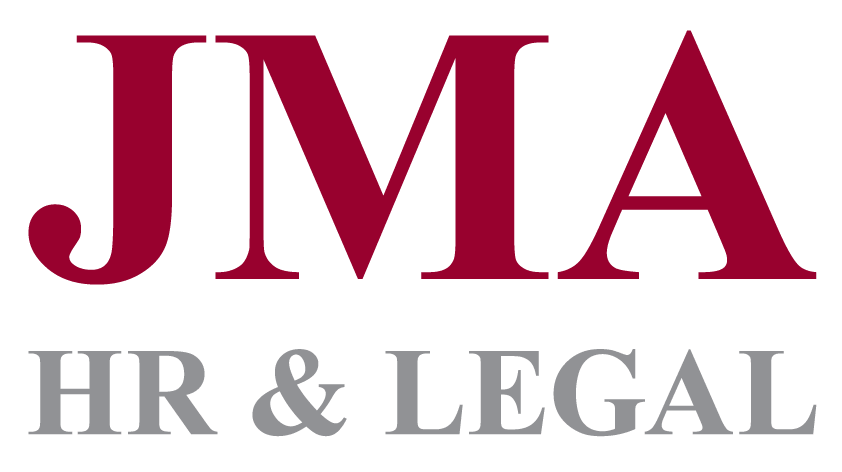It’s that time of year again when we see a number of employment law related changes. The following is a summary for your diaries and includes:
- the change to the taxation of termination payments;
- the increase in the figure for weekly pay used, amongst other things, for the statutory redundancy calculations and the unfair dismissal basic award;
- the national minimum wage increases;
- the rise in other statutory payments, such as SMP and SSP; and
- the much publicised GDPR.
Of course, not all changes will affect your business. However, please do not hesitate to contact us if you have any questions about these changes and how they may affect your business.
30 March 2018
Gender Pay Gap Reporting Deadline

This is the deadline for those public sector employers as listed in Schedule 2 of the Equality Act 2010 (Specific Duties and Public Authorities) Regulations 2017 with 250 or more employees (as at 31 March 2017) must publish their gender pay gap information.
31 March 2018:
Apprenticeship Targets

The Apprenticeships (Miscellaneous Provisions) Regulations 2017 come into force and make changes to the Public Sector Apprenticeship Targets Regulations 2017 which affect Academy proprietors, bringing them within the scope of the public sector apprenticeship target regime and provide that in respect of a police force, any member of that police force is relevant for determining its headcount for the purposes of the regime. For further information click HERE.
1 April 2018:
National Minimum Wage Increases

The National Minimum Wage Regulations are amended increasing the NMW for workers as follows:
- those aged 25 or over (the National Living Wage) to £7.83 an hour
- those aged 21 to 25 to £7.38 an hour
- those aged 18 to £5.90 an hour
- those under 18 to £4.20 per hour
- for apprenticeships to £3.70 an hour
Statutory Payments Increase
The weekly rates of statutory maternity pay (SMP), statutory paternity pay (SPP), statutory adoption pay (SAP) and statutory shared parental pay (SSPP) are increased to £145.18.
3 April 2018:
Qualifying Childcare Extended
The definition of ‘qualifying childcare’ within the Employer Supported Childcare regime is amended to include childcare by a person who is employed or engaged under a contract for services to provide care and support by the provider of a domiciliary support service.
4 April 2018:
Gender pay Gap Deadline
This is the deadline by which employers (excluding public authorities listed in Schedule 19 of the Equality Act 2010 and parts of the armed forces) with 250 or more employees (as at 5 April 2017) must publish their gender pay gap information.
6 April 2018:
Employment Tribunal Limits Increase
Employment tribunal limits increase as follows:
- the maximum amount of a week’s pay (used for calculating a redundancy payment and the unfair dismissal basic award, for example) rises from £489 to £508;
- the limit on amount of unfair dismissal compensatory award rises from £80,541 to £83,682;
- the minimum amount of unfair dismissal basic award for trade union, health and safety, working time representative, pension scheme trustee and employee representative dismissals rises from £5,970 to £6,203;
- the minimum amount for unlawful exclusion or expulsion from trade union rises from £9,118 to £9,474;
- the maximum guarantee payment per day rises from £27 to £28; and
- the amount for unlawful inducement relating to trade union membership/activities or collective bargaining rises from £3,907 to £4,059.
SSP Increases
The weekly rate of statutory sick pay (SSP) increases to £92.05.

A Change to the Taxation of Termination Payments (PILONs)
A significant change takes effect in the way termination payments made in respect of employment ending on or after 6 April are to be taxed. This is a change that we have all been anticipating for some time.
The key change is to payments that are made in lieu of notice, otherwise known as PILONs. It will no longer be the case that these can be made without deductions for tax and NI where there is no contractual right to make such a payment or the employer does not routinely choose to do so (the so called ‘auto-PILON’ situation).
From 6 April, all PILONs, whether contractual or not, will be subject to deductions for income tax plus employee and employer NICs on the amount of basic pay that the employee would have received if they had worked their notice in full. The new legislation introduces the concept of the ‘post-employment notice pay’’ (PENP) and provides a formula for the calculation for the tax liability on any such payments.
Note too that injury to feelings payments made following the termination of employment will now also only be exempt from deductions where there is a psychiatric condition or other medically recognised condition. Whereas, injury to feelings awards made for discrimination prior to termination can still be made free from deductions for tax and NI.
It is also proposed that the introduction of employer NICs on termination payments above £30,000 will take effect from 6 April 2019 rather than 6 April 2018. Such payments will remain free from employee NIC payments.
A further change also provides that for employment terminated on or after 6 April 2018, the foreign service exemption will no longer be available to employees (excluding seafarers) who are UK resident in the tax year their employment is terminated.
Rise in the Personal Allowance
There is a change to the personal allowance for income tax which will rise to £11,850 from 6 April 2018.
In the UK (excluding Scotland where different rates of income tax will apply), for the tax year 2018/19:
- the basic tax rate of 20% applies on annual earnings above the PAYE tax threshold and up to £34,500;
- the higher tax rate of 40% applies on annual earnings from £34,501 to £150,000; and
- the additional tax rate of 45% applies on annual earnings above £150,000.
NIC Earnings Limits Increase

The national insurance contributions lower and upper earnings limits in respect of primary class 1 contributions will increase from £113 and £866 to £116 and £892 respectively.
The multiplier figure used to calculate the cash equivalent of the benefit of fuel received by an employee for private motoring in a company car is increased from £22,600 to £23,400. The cash equivalent of the benefit of a van is increased from £3,230 to £3,350 and the van fuel benefit figure is increased from £610 to £633.
Pension Automatic Enrolment Contributions Increase
The minimum contributions for pension automatic enrolment also increase. The minimum contribution rates for defined contribution schemes, expressed as a percentage of a jobholder’s qualifying earnings, will increase from 1% for employers and a total of 2% to 2% for employers and a total of 5%.
Further, whilst the earnings trigger will remain at £10,000, the automatic enrolment qualifying earnings bands will changes as follows:
- the lower limit of the ‘qualifying earnings’ band will increase to £6,032 (from £5,876); and
- the upper limit of the qualifying earnings band will increase to £46,350 (from £45,000).
9 April 2018 the weekly rate of maternity allowance (MA) increases to £145.18.
25 May 2018
GDPR – new data protections laws in force

The new Data Protection Act 2018 and the widely publicised GDPR come into force. We will be reporting on this in more detail in our next newsletter. In the meantime, if you have not yet taken steps towards compliance with the new laws we would urge you to start by taking a look at the Information Commissioners (ICO) website: ICO GDPR
Please also let us know if you have any questions or concerns about the new data protection laws and we will be happy to work with you towards your compliance. We would certainly advise you to start thinking about reviewing your contracts of employment and HR policies to take the new laws into account.













Recent Comments